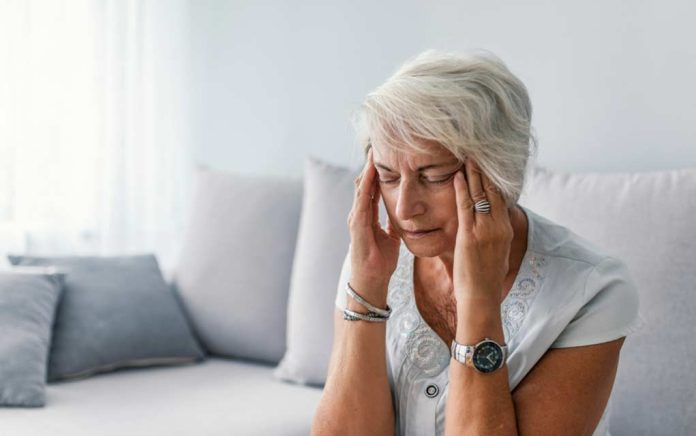
(HealthyResearch.com) – From ibuprofen to ease headaches to antacids for indigestion, we tend to reach for over-the-counter pain remedies automatically. Some of us may even have a drugstore’s worth of solutions in our medicine cabinets.
But what if we could use natural painkillers to ease our ailments? That’s exactly what some people are doing. Learn about six holistic options for what ails us below.
1. Willow Bark
Willow bark’s active ingredient, salicin, is like the key component of aspirin. We can use the dried herb in tea-like beverages, capsules, and liquids.
- Uses: Willow bark may ease lower backaches, headaches, and the pain of osteoarthritis (OA).
- Warnings: Just as with aspirin, willow bark may extend the time that we bleed. Also, this herb may cause stomach problems and even affect the kidneys.
- Who should avoid it: Children should not be dosed with willow bark. If you have aspirin sensitivity or are already using anti-inflammation medications, such as ibuprofen, talk to your physician before using willow bark. Because it affects bleeding risks, those on anticoagulants such as warfarin should not try this natural painkiller.
2. Turmeric
Those of us who love curry are already familiar with turmeric. This spice provides a unique flavor, while also resulting in that bright yellow hue.
Turmeric contains an antioxidant known as curcumin. The spice may help with inflammation and pain.
- Uses: Turmeric may help with hay fever symptoms, high cholesterol, depression, osteoarthritis pain, and knee function for those with OA.
- Warnings: Some people experience an upset stomach, dizziness, nausea, or diarrhea. Higher doses are more likely to result in such side effects.
- Who should avoid it: Pregnant women should not consume medicinal doses of turmeric. This spice also should be avoided if we have a bleeding disorder, gallbladder problems, gastroesophageal reflux disease (GERD), or diabetes.
3. Cloves
From pumpkin pie to flavorful rice dishes, cloves can spice up our lives. In capsule, powder, or oil form, cloves also may offer a natural way to treat a variety of conditions.
- Uses: Cloves may ease the pain of headaches, arthritis, and toothaches. They also might help with nausea. Use only a small amount of clove oil on your gums for toothaches.
Warnings: Because excess clove oil may harm our gums, check with your dentist before using it. - Who should avoid it: Clove oil may add to the risk of bleeding excessively, so those on blood thinners or have a bleeding disorder should be careful.
4. Peppermint Essential Oil
We may associate the odor of peppermint mainly with candy canes. However, peppermint essential oil might ease pain and reduce inflammation.
- Uses: Peppermint oil may ease arthritis pain, including muscle spasms. Rubbing the oil on our forehead might help with tension headaches.
- Warnings: Do not use the oil on any areas of broken skin.
- Who should avoid it: Children should not use peppermint oil.
5. Heat and Ice
We might already know that using an ice pack or heating pad may minimize swelling after an injury. These treatments also may help with some types of pain. But we also may benefit from knowing when to choose ice versus heat.
- Uses: After we strain our muscles, ice may prevent or decrease swelling. Once the swelling is gone, heat may help with the pain.
- Warnings: Limit the use of ice to 20 minutes per hour. Use a protective cloth between the ice pack or heating pad and your skin.
- Who should avoid it: If your injury has not improved in 24 hours, contact your healthcare provider. If you experience a fever or are in extreme pain, head to your nearest emergency department.
6. Acupuncture
Although health specialists have used acupuncture for centuries in Asia, this natural painkiller has become popular in the United States only recently. During a treatment, acupuncturists insert very slender needles into our skin at acupoints.
- Uses: Acupuncture may help with fibromyalgia, low back pain, menstrual cramps, and headaches by acting on our brains’ levels of serotonin, which affects our mood, and endorphins, which serve as natural painkillers.
- Warnings: If you live in a state with licensing requirements, choose a licensed acupuncturist. If your state lacks those guidelines, seek a practitioner certified by the National Certification Commission for Acupuncture and Oriental Medicine.
- Who should avoid it: Pregnant women, people with bleeding disorders, and individuals with pacemakers should avoid this method.
We each have our unique preferences for easing pain. Some of us may prefer to try natural alternatives as our first option, while others may want to seek pharmaceutical remedies.
No matter what method we select, it’s important to remember that we can improve the quality of our life by easing pain. Talking with our physicians about our preferences and what painkillers we are using can benefit our health both now and in the future.
~Here’s to Your Health & Safety!
Copyright 2021, HealthyResearch.com
















